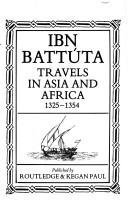
This guide was created to accompany the Muslim Journeys Bridging Cultures Bookshelf exhibit and events during 2013-2014. They contents are not currently being updated, other than maintaining links. We hope you enjoy the information within!
"Islam has long provided a source of inspiration through which Muslims experience, understand, and guide their everyday lives. The readings for this theme can be seen as literary reflections on Muslim piety and communal concepts such as ethics, governance, knowledge, and identity. Each one reveals transformations in faith and identity, as Muslims living at different times and in different places have interpreted Islamic traditions to meet their distinctive cultural realities and spiritual needs.
From formal poetry and the oral tradition of public storytelling to the more contemporary forms of memoir and the novel, many Muslim authors have posed questions about Muslim piety and identity. What does it mean to be a good Muslim? What does Islam require of women and men? How should a good Muslim behave within society? Does Islam promote specific political norms or practices?
The readings for this theme can be seen as literary reflections on questions such as these. Islam has long provided a source of inspiration through which Muslims experience, understand, and guide their everyday lives. In the works featured here, answers to these questions differ from one reading to the other, as each reflects the society in which it is written. Together they reveal how Muslims living at different times and in different places have interpreted Islamic traditions to meet their distinctive cultural realities and spiritual needs.
Still there are common threads that tie the readings together. The Arabian Nights, for example, is a cultural touchstone, serving in many subsequent literary works of the Muslim world as a source of inspiration for navigating between tradition and modernity, as the sanctuary of an idealized past in troubled times, or as a foil for exploring tensions between a secular establishment and the cultural revival of the Islamic faith in a globalized world. And, as each of these books considers various, contrasting, pathways toward transcendent faith and worldly identity, the mystical overtones of Muslim Sufi philosophy serve to complement formal religious requirements and local conditions."
Developed by Leila Golestaneh Austin, Johns Hopkins University.
 Travels in Asia and Africa, 1325-1354
by
Travels in Asia and Africa, 1325-1354
by